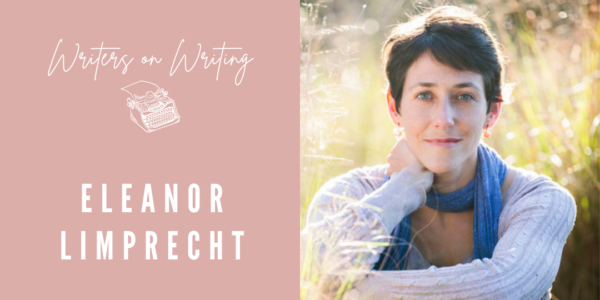
Writers on Writing is our regular conversation with a writer or industry professional about the writing craft, industry insights, and their own practice. We spoke to Eleanor Limprecht about the power of research and how writers can find inspiration.
Why is research such an important skill for writers?
The more you research, the more you know. Research allows us to write about subjects which we are not already experts in, subjects which interest us and fill us with curiosity. It allows writing to be imbued with the kinds of details which bring the reader into the worlds we’ve created and make those worlds fascinating.
Do you find that your writing inspiration comes from research? Or the other way around?
I’m normally inspired by something I read about or hear in passing and it’s only if, while researching it, I become totally obsessed that I know that it is worth exploring and worth pursuing. The exception (there are always exceptions) was with my second novel Long Bay, where I’d heard there was a Women’s Reformatory at Long Bay before it was a men’s prison and I went to the NSW State Archives because I saw they had the record books from the reformatory, beginning in 1909. There I discovered the story which I was compelled to write about, that of the convicted abortionist who gave birth while a prisoner, Rebecca Sinclair.
What sort of ethical considerations must be made when researching?
Are you writing about real people? Are they still alive? Are their descendants? How will they feel about you writing this? Are you fictionalising real events? Are you changing the historical record? Is anyone going to be harmed by this story? Is it worth telling anyway? There are always ethical considerations with every story we tell, and the best way to approach this is decide where you stand. What will allow you to sleep at night? Is it going to be helpful to talk to these people and let them know what you plan to do? Is it important to you to seek permission, or will it change the way that you write? There are no Ten Commandments here, but there are a whole raft of decisions every writer must make for themselves.
How might your research approach change for writing fiction, (eg. compared to memoir or non-fiction?)
With fiction, the gaps which research cannot fill are where the imagination can enter the story. In fiction, the gaps are a gift rather than a problem. But in memoir or non-fiction, the gaps are trickier. They are always going to exist, but if you imagine what fills them you have to make it clear that this is you, the author, imagining. The contract with the reader is different in fiction and non-fiction: it doesn’t mean that authors of non-fiction and memoir can’t use their imagination it just means that when they do, they should let the reader know as much.
Eleanor Limprecht is the author of four novels: The Coast, The Passengers, Long Bay and What Was Left, which was shortlisted for the 2014 ALS Gold Medal. She writes contemporary and historical fiction, essays, book reviews and short fiction. Her short stories have been in Best Australian Stories, Sleepers Almanac, and Kill Your Darlings. She received her Doctorate of Creative Arts in Writing at UTS.
If you want to be the first to read great advice, prompts and inspiration from our incredible tutors, subscribe to our weekly e-newsletter Newsbite.
More from Writing NSW
Check out our full range of writing courses in Sydney, our online writing courses and our feedback programs to see how we can help you on your creative writing journey. Find out about our prizes & opportunities, as well as writing groups across NSW, and sign up to our weekly newsletter for writing events, opportunities and giveaways.
